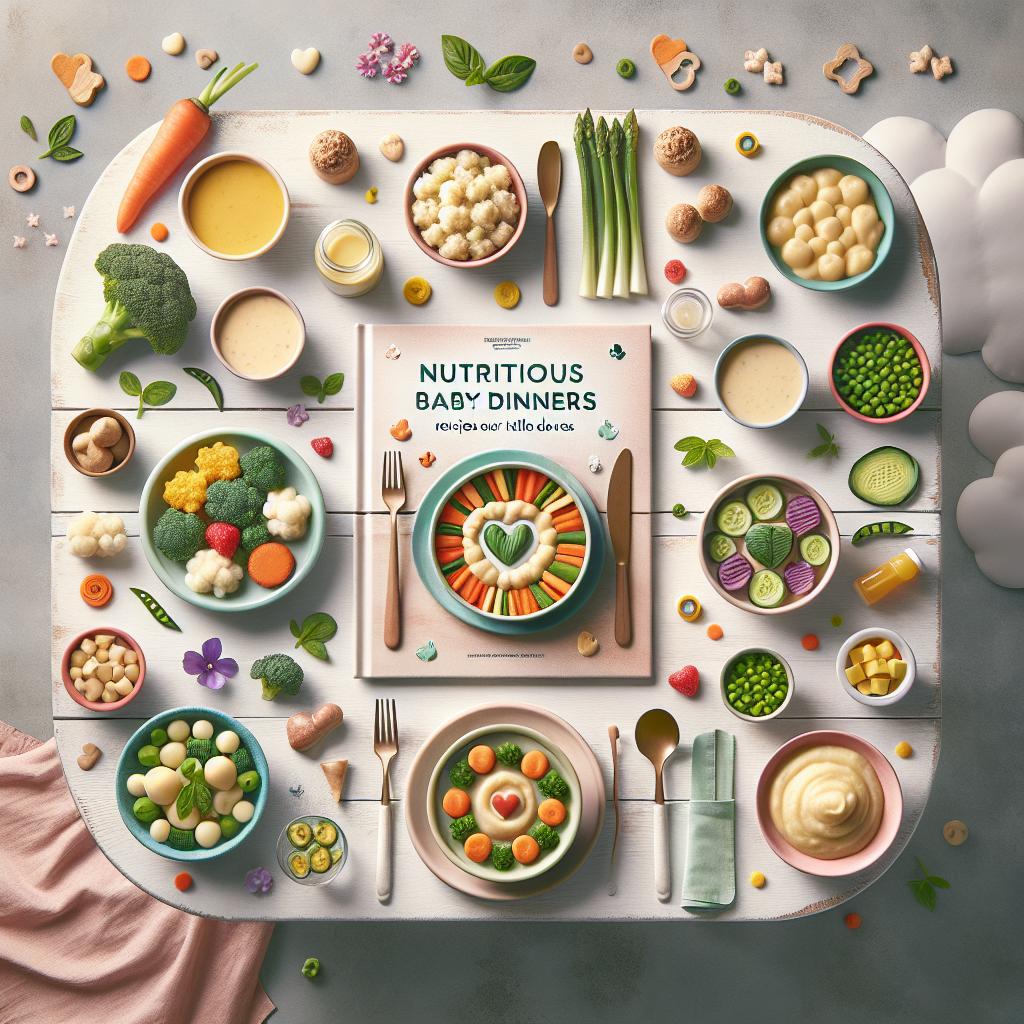As new parents, it can be overwhelming to decide what to feed your little one, especially when transitioning from breastmilk or formula to solid foods.
Fortunately, there are many nutritious dinner ideas that your baby will love. These healthy meals are not only easy-to-make but also packed with all the nutrients necessary for their growth and development.
Why Nutritious Dinners are Essential for Babies
Just like us adults, babies need a variety of nutrients to thrive. When introducing solids, it’s important to provide meals that are rich in vitamins, minerals, and other essential nutrients. A nutritious dinner can support your baby’s growth and ensure they develop a love for healthy foods from an early age. Let’s explore some reasons why nutritious dinners are a must for your little one.
- Supports growth and development: Babies grow at an incredibly fast rate, and the nutrients they receive from their food plays a significant role in this growth. Nutritious dinners provide them with the needed nutrients for their physical and mental development.
- Develops healthy eating habits: Introducing your baby to nutritious foods early on can help shape their eating habits. It’s a great way to encourage a preference for healthy foods over processed or sugary ones.
- Immunity boost: Nutritious dinners, rich in vitamins and minerals, can help boost your baby’s immune system, protecting them from common illnesses.
An Array of Nutritious Baby Dinner Ideas
Here are some delicious and nutritious baby dinner recipes that are easy to prepare and are loved by little ones:
Sweet Potato Mash
Sweet potatoes are an excellent source of vitamin A, which is essential for good vision, growth, and a strong immune system. To make a sweet potato mash, simply boil a peeled and diced sweet potato until it’s tender. Drain and mash it until it’s smooth. You can add a bit of breastmilk or formula to thin it out if necessary.
Avocado and Banana Puree
Both avocados and bananas are nutrient-dense and have a creamy texture that babies love. To prepare this puree, blend a ripe banana and avocado until smooth. You can also add a bit of breastmilk or formula for a thinner consistency.
For more recipe ideas, check out these easy baby meals at Yummy Toddler Food or these baby-friendly recipes at Healthy Little Foodies.
Remember to Adapt to Your Baby’s Changing Needs
Every baby is different, and it’s essential to adapt to your baby’s changing needs as they grow. For example, some babies may need to start with very smooth purees, while others are ready for more textured foods. To learn more about how we managed to adapt to these changes, read our experience with breastfeeding older babies.
Nutritious Baby Dinners: Recipes Our Little One Loves
Iron-Rich Spinach Puree
Spinach is packed with iron, an essential nutrient for the healthy development of your baby’s blood cells and brain. To make a spinach puree, steam fresh spinach leaves until wilted. Blend the spinach along with a bit of the steaming water until smooth. For babies over 6 months, you can add a pinch of nutmeg for flavor.
Protein-Packed Lentil Puree
Lentils are a great source of protein and fiber, making them a great addition to your baby’s diet. Lentil puree is easy to make. Start by soaking lentils for few hours, then boil them in a pot with enough water. Once they are cooked, blend them until smooth. Feel free to add some cumin for added taste. If you are unsure on how to prepare lentils for babies, this Indian recipe might be a good start.
Fruit-Filled Apple and Pear Puree
Apples and pears are both rich in fiber and vitamin C. For a fruit-packed puree, peel, core, and chop some apples and pears. Steam the fruit until soft, and then blend until smooth. This tasty puree can be served on its own or mixed in with porridge.
Experimenting with Flavors
One of the keys to good nutrition for babies is not being afraid to experiment with different flavors and textures. Some foods that might seem unusual or sophisticated for babies, like garlic or basil, can be a wonderful way to expand their palate and expose them to a wide variety of flavors. Be sure to introduce one new food at a time so that you can monitor for any potential allergic reactions.
For a variety of tried and tested baby recipes across all age groups, explore the website of Min, a registered dietitian and pediatric nutritionist at MJ and Hungryman. If you are looking to introduce textures along with flavors, try these baby and toddler meals focusing on sensory experience. For a thorough guide on making homemade baby food visit HealthLine.
Taking Baby Steps with Baby Dinners
Ensuring your baby gets the right nutrition doesn’t have to be overwhelming. It’s all about taking baby steps and gradually introducing solid foods. It’s more important to encourage your baby to try new flavors and textures than to consume large amounts of food at this stage. Always remember: feeding time is also a bonding time. It’s a chance to interact with your child and share in their first experiences of different food tastes.
Consulting a Professional
If you feel overwhelmed or unsure about feeding your baby, always consult healthcare providers or a registered dietitian. They can provide personalized advice based on your baby’s needs and growth.
Each baby’s progression to solid foods is unique, and it’s essential to be patient and responsive to their signals. The journey from breastmilk or formula to solid foods is an exciting adventure, so enjoy the process as much as your baby will enjoy their new foods!

